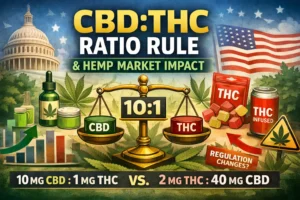What is Reg-tech?
RegTech, short for regulatory technology, is a new industry that takes complex regulatory frameworks and creates software from them so businesses can more easily comply with the laws and regulations their industries face.
In this page, we will profile three sectors and provide examples of the new RegTech space, discuss some upcoming conventions, and provide insights on how regtech is helping everyday businesses reduce costs, while increasing compliance with complicated regulatory requirements.
Regtech Landscape
RegTech has the most practical application to industries fraught with regulations at all four levels of government – federal, state, county, and municipal.
Several RegTech companies use novel business models that create governmental relationships to save taxpayers money, and pass the cost onto their business customers that still see cost savings from reduced compliance costs internally.
If you think combining regulations and technology is boring, we will start with the most interesting, and heavily regulated, industry – cannabis.
Call tech Attorney Thomas Howard at (309) 740-4033.
Tom Howard started his first techology company in 2014, this website was built by his current one, Stumari – ask him about your company’s technology today.
Let’s get to our examples – we will throw in a bonus 4th example, which is the website that I worked on until spinning it off for helping with applying technology to immigration procedures.
Key Takeaways
- RegTech is the subsector of technology that streamlines compliance for financial, insurance, healthcare, cannabis, or any industry that has to deal with cumbersome regulations.
- RegTech mostly works for help companies in compliance, reports, or monitoring business practices to ensure regulations are met.
- The internet and connected devices have spurred development in RegTech and this trend is new, fast growing and likely to continue.
How RegTech Helps Cannabis Compliance
Cannabis laws have not been as complicated as they are now in decades. Each state has its own laws, each city, and increasingly the federal government treats cannabis differently, whether it is hemp, medical, or adult use marijuana.
Long story short, cannabis is the perfect industry for RegTech. Enter the business helping new cannabis businesses comply with the new laws the various state governments are passing, and the evolving federal landscape: Adherence Compliance.
Stared in 2014, Adherence Complaince begain as Adherence Colorado, but as legalization spread across the US, more businesses needed help complying with the various legislative frameworks.
Today, Adherence Compliance helps not only businesses, but also state and local governments, keep their license holders in compliance. One of their business models is to get the contracts with governments, but pass the costs for their services to the cannabis-related legitimate businesses, which ends up to be a savings for their complaince.
For more, please visit their website:
How RegTech Helps Healthcare.
The Health Insurance Portability and Accountability Act, better known by its acronym, HIPAA, is a very complex and difficult system designed to help people keep their healthcare information private.
Most companies in the healthcare space fail to comply with it, or have to pay expensive lawyers, or full time staff, to comply. Failure to comply with HIPAA carries very oppressive penalties that drive the consolidation in the industry due to the risk and the cost of the compliance.
An expensive and cumbersome regulatory framework required for healthcare providers, this is exactly the use case for RegTech. Some compliance software helps not only what is known as a “Covered Entity” under HIPAA comply, but also what is called their “Business Associates.”
Healthcare is huge business, and gaining access to the sector often means facing HIPAA compliance. As such, what is the startup supposed to do when trying to get their company off the ground in the healthcare sector? Pay tens of thousands for a compliance officer’s salary? Dump it onto their general counsel? Or, pay a software company a fraction of that for a license to use their software for a year?
Companies like Compliancy Group can offer something besides the software to help keep companies in compliance with HIPAA’s regulations, it can also help optimize their offerings with the data of its users. A RegTech company has a treasure trove of data about their clients and the problems that they may face in staying compliant. This provides the basis for new features and updates, but also leverages the best practices that humans on an individual scale simply cannot do.
A general counsel for a healthcare company that doesn’t use a RegTech company to cover their HIPPA complaince faces worse outcomes and higher costs.
RegTech Helping Governments Issue Permits
One of the startups that is trying to fix the problem of issuing licenses and permits is CivicServ. After I made my first app, I turned toward building software for lawyers that I thought could be coded and I settled on immigration applications. When looking for examples and coders, I found the people beind DevBright, which founded CivicServ.
My Work Visas Solutions, regtech for immigration applications and compliance after the visa holder has been issued, is waiting for my practice to grow to include an immigration lawyer that can fulfill the orders we would get with our SEO services and amazing marketing. Some of the companies miss that aspect, but their value is clear.
RegTech helps companies comply with the law so they can focus on their business.
The RegTech companies we discussed:
- Adherence Complaince
- Compliancy Group
- CivicServ
- Work Visas Solutions
If your company has compliance issues, or is facing another technology issue, feel free to call us.
Our experience in the technology space is beyond what 99% of other business lawyers can provide – plus our SEO is way better so we can help you get more leads.
RegTech Conventions
Unsurprisingly, Germany hosts the mother of all RegTech conventions, but many popular ones are held in the US. While they tend to gravitate toward the FinTech umbrella. Here’s a list of the industry RegTech Events.
Thomas Howard was on the ball and got things done. Easy to work with, communicates very well, and I would recommend him anytime.





